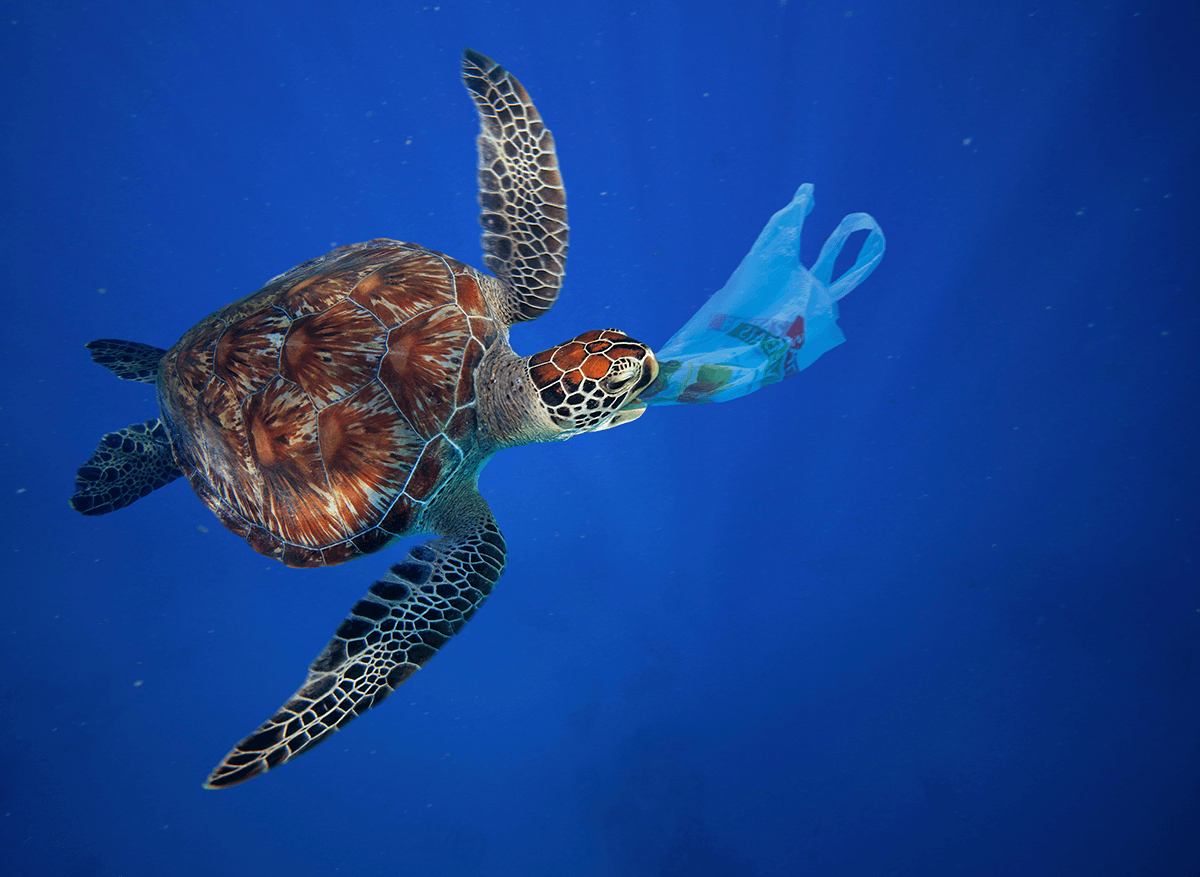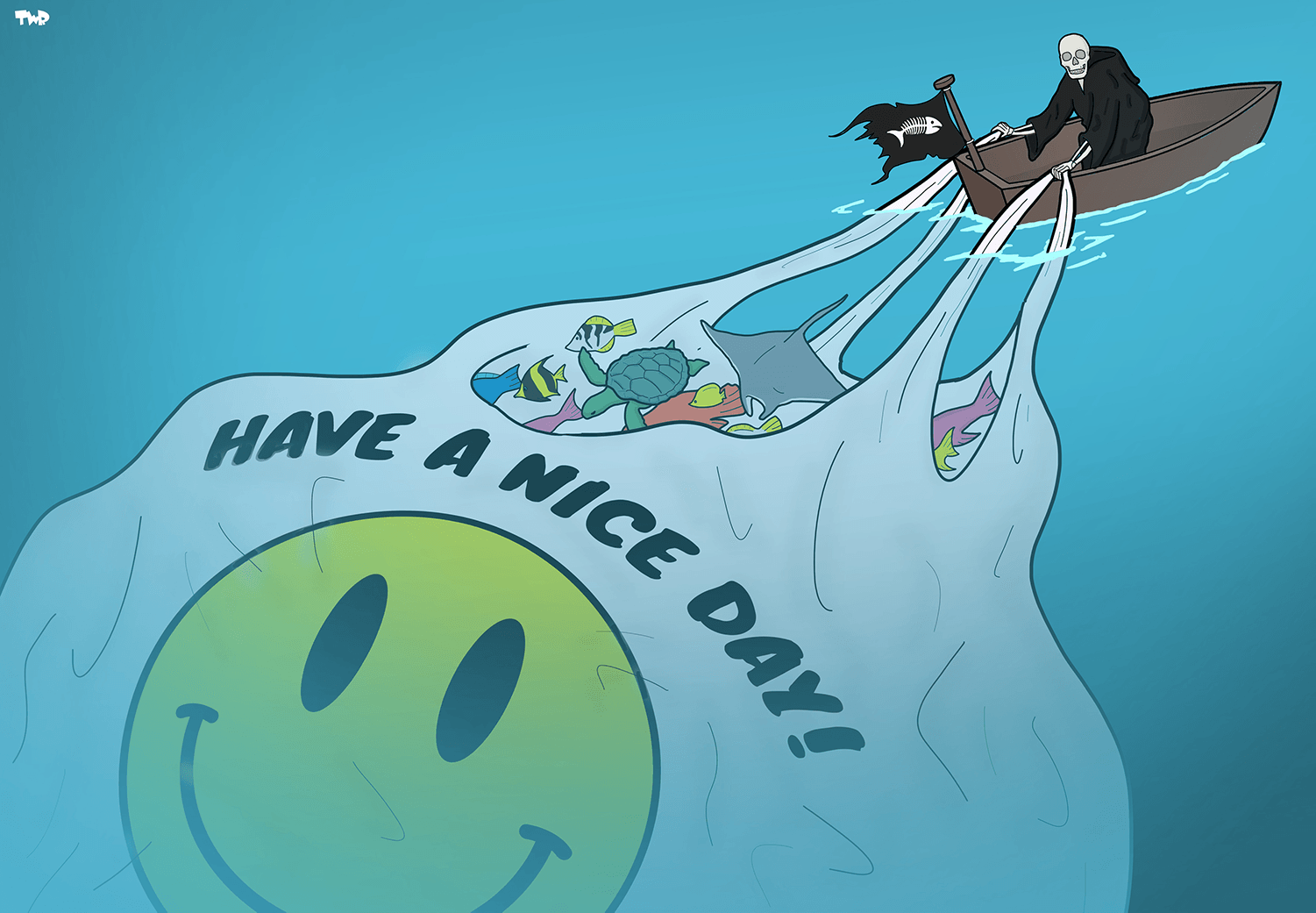One of the most visible proofs of humanity's destruction of the environment is the vast quantity of plastics polluting the oceans, washing up on the remotest islands and sinking into the deepest trenches, inflicting immense suffering on marine life, which it kills in a variety of excruciating ways.
Our long-term legacy of destruction
Plastic obviously has many useful qualities. Modern society is unthinkable without it. But the moment it is discarded, it becomes a menace to life on a global scale. Most plastic ends up in the oceans, where its effects on aquatic life are devastating and accumulating. First the larger fragments cripple, suffocate, starve and poison birds, fish and mammals in huge numbers. This happens again and again because of the durability of plastic (some plastics take hundreds of years and more to decompose). As the plastic is broken down into smaller particles it is eaten by smaller creatures, which in turn are eaten by bigger creatures, so that it builds up in the food chain. As it also releases all kinds of toxins that are extremely harmful to all life forms.
The fact that our waste endangers so many of our fellow creatures should long have been a reason to clean up our act. It damns us, totally refutes all our claims of greatness, superiority, goodness or even common decency. There is no merit in being indifferent, callous or cruel towards others, human or animal, just baseness, shameful and vile. Our destructive behavior has made us the greatest scourge this planet has ever faced, a threat to life itself. We still have time to redeem ourselves, though not very much.
It is not only our moral duty to stop fouling this precious planet. It is also a matter of self-preservation. The destruction of marine animals endangers the existence of more than a billion humans, who depend on them for food. And if our destructive folly should ever include phytoplankton, which is by no means unlikely, the loss of that major source of oxygen may well suffocate us all.
The ten countries that dump the most plastic into the oceans (according to a major study by Jambeck et al. published in Science in 2015) are:
Polluters
| China |
27.7% |
| Indonesia |
10.1% |
| Philippines |
5.9% |
| Vietnam |
5.8% |
| Sri Lanka |
5.0% |
| Thailand |
3.2% |
| Egypt |
3.0% |
| Malaysia |
2.9% |
| Nigeria |
2.7% |
| Bangladesh |
2.5% |
Because of its visibility plastic does receive a little more attention than other forms of pollution and some attempts are actually being made to tackle the problem.
In February 2017 UN Environment launched a major global #CleanSeas campaign, an extremely laudable initiative that deserves all the support it can get. But, sadly, the UN has no powers of enforcement, so it all depends on the willingness of governments, businesses and individuals to have any lasting effect. Given the fact that only 3 of the 10 worst polluters (Indonesia, the Philippines and Sri Lanka) have joined the movement, there is little room for optimism.
The most glaring absentee from this campaign is obviously China. In view of all its ecological boasting, gullible observers might have expected China to accept responsibility for the colossal harm it has done to the marine environment and volunteer to clean up the mess it has made. Sadly, there is no sign of that yet.
As always, money is the key. Destroying the environment is profitable, protecting it is costly.
Another small but significant initiative is the OceanCleanUp project, which is about to begin cleaning up the Great Pacific Garbage Patch, a huge collection of plastic debris floating in the Pacific ocean. The venture is not without its critics, but its creators seem a dedicated group of people, who certainly should be given a chance to show what they can do.
One of their findings was that at least 46 percent of the plastic in the GPGP comes from abandoned fishing nets, which are veritable death traps for marine life. It is yet another pinnacle of human stupidity that people who depend on marine life for their livelihood should treat it with such mindless and harmful disregard.
Obviously cleaning up the existing mess is only part of the solution. As always prevention is better than cure. Seeing that about half the plastic we use is used only once before being thrown away, it is certainly not needed for its durability.



